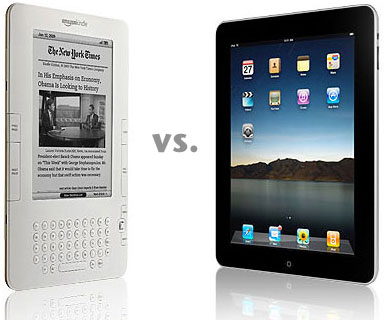The US Department of Justice (DOJ) says that after the big five
publishers signed agreements with Apple, the price of ebooks went up.
They say that this shows an agreement by the parties to fix prices. The
evidence was hidden by personal meeting, phone calls, etc. leaving
little paper trail.

The cause and effect appear to be a strong case - except that
without any evidence, the argument is circumstantial. If this goes to
trial, we can expect a lot of sworn testimony under oath to be
requested by the DOJ. I would find the news a great source of
background details that generally never get revealed. Apple and the
rest may find the exposure unpleasant, even if it is not found
guilty.
Apple's Side
Why would Apple risk exposing itself? This is a secretive company
that likes to control any release of information to the press.
It can't be the desire to prove it did nothing wrong. Apple is a
business, and it makes decisions based on future business plans. Giving
up either affects its plans for how selling helps Apple or how the
other plan help its competition too much.
The defense of the plan can help Apple by strengthening its allies,
the book publishers. Apple and the publishers traded support. Apple
backed the publishers' pricing model, and in turn they promised Apple
the lowest rates. Breaking that relationship weakens the goodwill they
shared, and it ends the "most favored nation" status Apple has under
these agreements.
Apple hates to compete on price, because it hurts the Apple brand.
This is a big factor in Apple's behavior.
Amazon's Side
On the other side, Amazon benefits the most from low prices. Its
Kindle is still the best selling ebook reader hardware. The cheaper it
can sell ebooks, the better it makes the Kindle.
It is the standard rule of products and their complements: If you
sell cars, you want gas to be cheap. If you sell razor blades, you give
away the razor. A cheap price on one side boosts sales on the other
side. Amazon wants to boost sales of Kindles by making ebooks as cheap
as possible.
Competition from Apple or Barnes and Nobel is a big negative. These
two companies have their own ebook readers (the iPad does quite a few
more tricks), and their ebook formats don't have to be compatible with
the Kindle. If Amazon has to discount prices to increase its market
share, that's okay.
However, this predatory business practice was ended by the
agreements publishers made with Apple.
The Greater Good
The DOJ is correct that Amazon's system offered the lowest prices to
consumers. The cost of that choice was that Amazon used the arrangement
to drive off competition by sometimes selling ebooks below cost.
Apple's arrangement makes it possible for publishers to profit from
selling ebooks, but someone has to pay for those profits, and that's
the consumer.
Which is the greater good? Should Amazon be allowed to trash the
market price of an ebook, or should publishers be allowed to fix the
price of ebooks and use a central figure like Apple to help?
The villain depends on your point of view. The average consumer
cares only about price. For 10¢ less, they will drive across town
for a better deal. From that viewpoint, Apple is the villain for
helping publishers raise prices.
On the other hand, Apple has created a stronger business model that
gives itself a share of the profits.
At the same time, higher prices on ebooks make more money for Amazon
on each ebook sold.
Amazon wants to practically give away ebooks so it can effectively
corner the ebook reader market with its Kindle. Clearly Amazon wants to
be the villain to the others in the same business.
In the long run, you can't go against business. If Amazon wins, they
will eventually raise the price of ebooks. Amazon has to show a profit
to its shareholders.
If the book publishers win, business goes on the same.
All the DOJ can hope to do is create temporary relief for the
consumer. 



